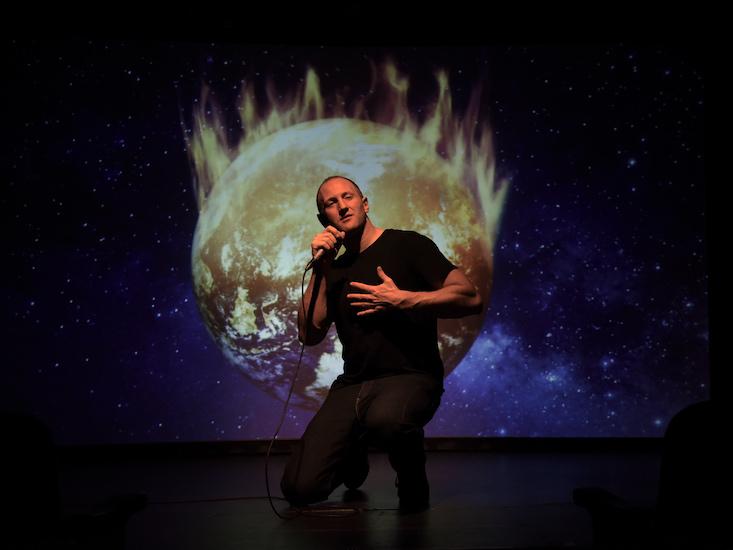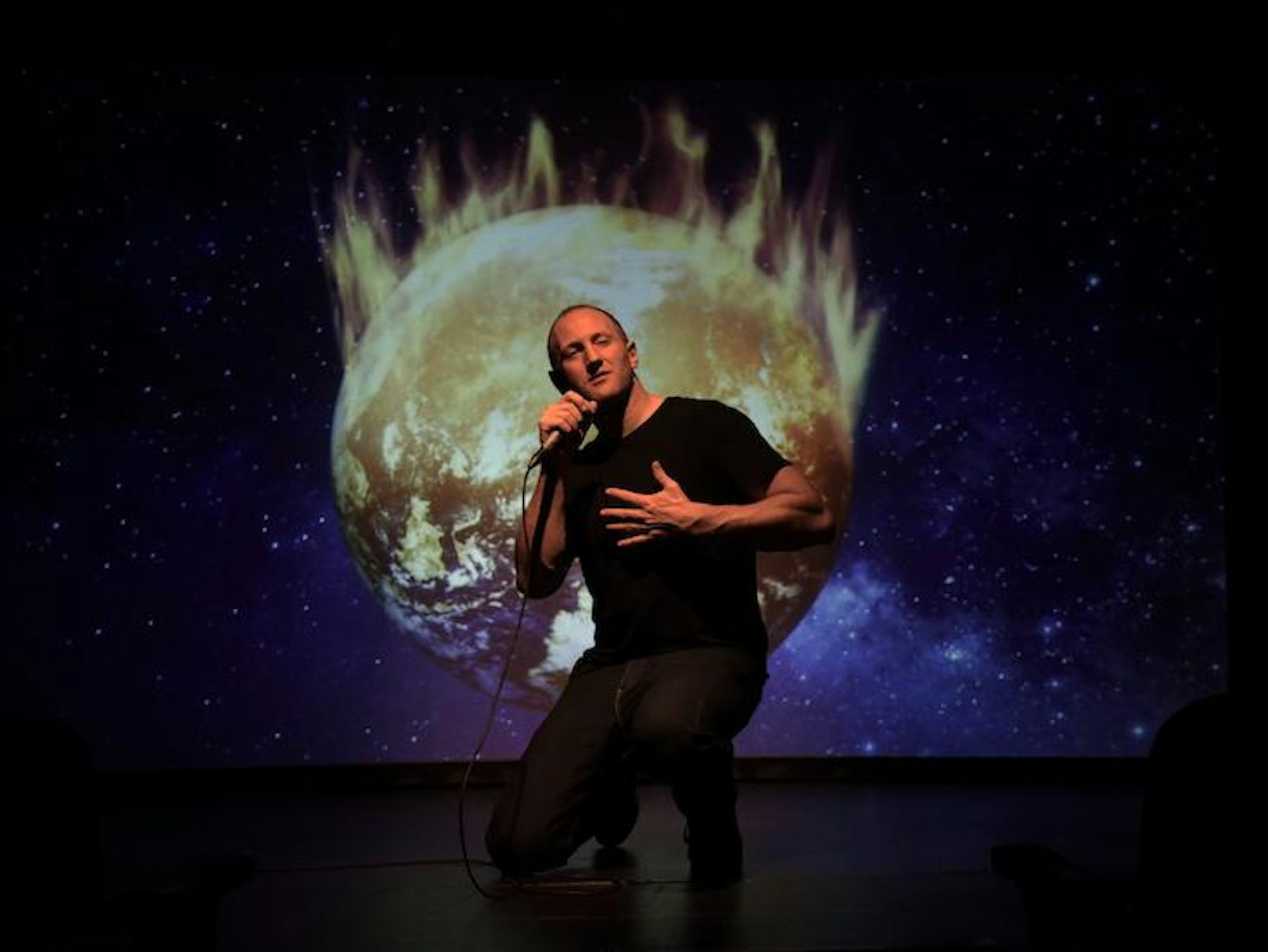Even though there’s virtually nothing you can do as an individual to combat climate change, the problem remains solvable. It’s almost like a riddle, the world’s thorniest challenge. In my new off-Broadway production, “Rap Guide to Climate Chaos” (now running at the Soho Playhouse), I delve into this dilemma, taking my literary inspiration from Chaucer’s Canterbury Tales. The audience is taken on a journey, guided by a well-intentioned rapper, poet, and truth-seeker—a naïve persona of myself—who tries to make sense of climate change and what it means for each of us and for society at large.

In this scene from “Rap Guide,” I have encountered Pope Francis’ papal encyclical, Laudato Si, and the Pope’s message has moved me to take action, but I struggle to find a satisfying outlet for that feeling. In Laudato Si, Pope Francis takes aim at a way of thinking he calls the “dominant technocratic paradigm” and offers many of the usual environmentalist prescriptions for individual action: “Avoiding the use of plastic and paper, reducing water consumption, separating refuse, cooking only what can reasonably be consumed, showing care for other living beings, using public transport or car-pooling, planting trees, turning off unnecessary lights, etc.”
Moved by this call for individual action, I experience a “transformational change of heart” and advocate many of these consumer-level solutions to my audience, concluding with a sense of self-satisfaction: “I did all that, it was easy! / Are we done? Can I go back to watching TV?”
But I’m immediately slapped in the face by reality: Global emissions continue to rise in spite of our green-minded consumer decisions. Is it that we aren’t doing enough as green consumers? (A 2014 study reported that, “even with adequate knowledge of how to save energy and a professed desire to do so, many consumers still fail to take noticeable steps towards energy efficiency and conservation.”) Or is it that consumer-level choices are fundamentally inadequate to solve the problem? After all, climate change is a lot bigger than what we choose to buy; it’s driven by an energy production and transportation infrastructure that is global in scale.
Letting “35 gigatons of carbon per year into the atmosphere,” says Elon Musk, is “analogous to not paying for garbage collection.”
The United Kingdom, for its part, has committed to reducing its greenhouse gas emissions by 80 percent, relative to 1990 levels, by 2050, with 70 percent of the emission-reduction coming from food production. But it’s hard to see how UK citizens, applying the Pope’s “reduce, reuse, recycle” message, could attain this acting on their own. A 2014 study found that “reducing emissions beyond 40 percent through dietary changes alone will be unlikely without radically changing current consumption patterns and potentially reducing the nutritional quality of diets.”
In “Rap Guide,” when I apply that message to myself, I realize that I am deeply attached to the particular goods and services that I produce and sell—hip-hop entertainment—and starkly admit that I am not willing to “stop this show to save the climate.” This pushes me to self-reflect: I try to confront the clear scientific fact that we face global peril from rising emissions, while reconciling it with the socio-psychological fact that most of us are not willing to unilaterally give up aspects of our lifestyle, or change our standard of living (especially concerning our jobs and the welfare of our families) in order to avoid that peril.

In the rap that follows, “Make It Hot,” I identify the climate crisis as essentially an “arms race” or “tragedy of the commons.” A recent study this year, for example, found that people are less likely to act on climate change when you frame it as their personal responsibility, and much more likely to act when you frame it as a collective challenge. “Thinking about climate change from a personal perspective,” the researchers say, “produced little to no change in behavior.” Which is why, in “Make It Hot,” I call for policy solutions. This includes a carbon tax, to help overcome the paralysis of waiting for individual action to accelerate society’s transition to a sustainable-energy future.
As Elon Musk said in Paris, earlier this year: “The reason that the transition is delayed, or is happening slowly, is because there is a hidden subsidy on all carbon-producing activity.” Our economic incentives today, he said, are not aligned with a good future. “The net result is 35 gigatons of carbon per year into the atmosphere. This is analogous to not paying for garbage collection.”
So relax: You can’t do anything about climate change, but we—acting together—can.
Baba Brinkman is a Canadian rap artist, an award‐winning playwright, and a pioneer in literary hip-hop. He is best known for his “Rap Guide” series. His work has been covered by the New York Times, Time Out New York, The Village Voice, NPR, Macleans, the CBC, and the BBC. An album version of “Rap Guide to Climate Chaos” will be released following his off-Broadway production. Follow him on Twitter @BabaBrinkman.






























